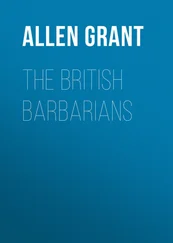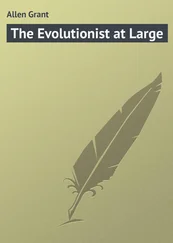Grant Allen - What's Bred in the Bone
Здесь есть возможность читать онлайн «Grant Allen - What's Bred in the Bone» — ознакомительный отрывок электронной книги совершенно бесплатно, а после прочтения отрывка купить полную версию. В некоторых случаях можно слушать аудио, скачать через торрент в формате fb2 и присутствует краткое содержание. Издательство: Иностранный паблик, Жанр: foreign_prose, literature_19, Классический детектив, foreign_detective, foreign_antique, на английском языке. Описание произведения, (предисловие) а так же отзывы посетителей доступны на портале библиотеки ЛибКат.
- Название:What's Bred in the Bone
- Автор:
- Издательство:Иностранный паблик
- Жанр:
- Год:неизвестен
- ISBN:нет данных
- Рейтинг книги:4 / 5. Голосов: 1
-
Избранное:Добавить в избранное
- Отзывы:
-
Ваша оценка:
- 80
- 1
- 2
- 3
- 4
- 5
What's Bred in the Bone: краткое содержание, описание и аннотация
Предлагаем к чтению аннотацию, описание, краткое содержание или предисловие (зависит от того, что написал сам автор книги «What's Bred in the Bone»). Если вы не нашли необходимую информацию о книге — напишите в комментариях, мы постараемся отыскать её.
What's Bred in the Bone — читать онлайн ознакомительный отрывок
Ниже представлен текст книги, разбитый по страницам. Система сохранения места последней прочитанной страницы, позволяет с удобством читать онлайн бесплатно книгу «What's Bred in the Bone», без необходимости каждый раз заново искать на чём Вы остановились. Поставьте закладку, и сможете в любой момент перейти на страницу, на которой закончили чтение.
Интервал:
Закладка:
And now he had met them, his conscience, that had lain asleep so long, woke up of a sudden with a terrible start, and began to prick him fiercely.
If only they had been ugly, misshapen, vulgar; if only they had spoken with coarse, rough voices, or irritated him by their inferior social tone, or shown themselves unworthy to be the heirs of Tilgate—why then, the Colonel might possibly have forgiven himself! But to see his own two sons, the sons he had never set eyes on for twenty-five years or more, grown up into such handsome, well-set, noble-looking fellows—so clever, so bright, so able, so charming—to feel they were in every way as much gentlemen born as Granville himself, and to know he had done all three an irreparable wrong, oh, THAT was too much for him. For he had kept two of his sons out of their own all these years, only in order to make the position and prospects of the third, at last, certainly doubtful, and perhaps wretched.
There was much to excuse him to himself, no doubt, he cried to his own soul piteously in the night watches. Proud man as he was, he could not so wholly abase himself even to his inmost self as to admit he had sinned without deep provocation. He thought it all over in his heart, just there, exactly as it all happened, that simple and natural tale of a common wrong, that terrible secret of a lifetime that he was still to repent in sackcloth and ashes.
It was so long before—all those twenty-six years, or was it twenty-eight?—since his regiment had been quartered away down in Devonshire. He was a handsome subaltern then, with a frank open face—Harry Kelmscott, of the Greys—just such another man, he said to himself in his remorse, as his son Granville now—or rather, perhaps, as Guy and Cyril Waring. For he couldn't conceal from himself any longer the patent fact that Lucy Waring's sons were like his own old self, and sturdier, handsomer young fellows into the bargain than Lady Emily Kelmscott's boy Granville, whom he had made into the heir of the Tilgate manors. The moor, where the Greys were quartered that summer, was as dull as ditch-water. No society, no dances, no hunting, no sport; what wonder a man of his tastes, spoiling for want of a drawing-room to conquer, should have kept his hand in with pretty Lucy Waring?
But he married her—he married her. He did her no wrong in the end.
He hadn't that sin at least to lay to his conscience.
Ah, well, poor Lucy! he had really been fond of her; as fond as a Kelmscott of Tilgate could reasonably be expected ever to prove towards the daughter of a simple Dartmoor farmer. It began in flirtation, of course, as such things will begin; and it ended, as they will end, too, in love, at least on poor Lucy's side, for what can you expect from a Kelmscott of Tilgate? And, indeed, indeed, he said to himself earnestly, he meant her no harm, though he seemed at times to be cruel to her. As soon as he gathered how deeply she was entangled—how seriously she took it all—how much she was in love with him—he tried hard to break it off, he tried hard to put matters to her in their proper light; he tried to show her that an officer and a gentleman, a Kelmscott of Tilgate, could never really have dreamed of marrying the half-educated, half-peasant daughter of a Devonshire farmer. Though, to be sure, she was a lady in her way, too, poor Lucy; as much of a lady in manner and in heart as Emily herself, whose father was an earl, and whose mother was a marquis's eldest daughter.
So much a lady in her way, in deed, in thought, and all that—one of nature's gentlewomen—that when Lucy cried and broke her heart at his halting explanations, he was unmanned by her sobs, and did a thing no Kelmscott of Tilgate should ever have stooped to do—yes, promised to marry her. Of course, he didn't attempt in his own heart to justify that initial folly, as lie thought it, to himself. He didn't pretend to condone it. He only allowed he had acted like a fool. A Kelmscott of Tilgate should have drawn back long before, or else, having gone so far, should have told the girl plainly—at whatever cost, to her—he could go no further and have no more to say to her.
To be sure, that would have killed the poor thing outright. But a Kelmscott, you know, should respect his order, and shouldn't shrink for a moment from these trifling sacrifices!
However, his own heart was better, in those days, than his class philosophy. He couldn't trample on poor Lucy Waring. So he made a fool of himself in the end—and married Lucy. Ah, well! ah, well! every man makes a fool of himself once or twice in his life; and though the Colonel was ashamed now of having so far bemeaned his order as to marry the girl, why, if the truth must out, he would have been more ashamed still, in his heart of hearts, even then, if he hadn't married her. He was better than his creed. He could never have crushed her.
Married her, yes; but not publicly, of course. At least, he respected public decency. He married her under his own name, to be sure, but by special licence, and at a remote little village on the far side of the moor, where nobody knew either himself or Lucy. In those days, he hadn't yet come into possession of the Tilgate estates; and if his father had known of it—well, the Admiral was such a despotic old man that he'd have insisted on his son's selling out at once, and going off to Australia or heaven knows where, on a journey round the world, and breaking poor Lucy's heart by his absence. Partly for her sake, the Colonel said to himself now in the silent night, and partly for his own, he had concealed the marriage—for the time being—from the Admiral.
And then came that horrible embroilment—oh, how well he remembered it. Ah me, ah me, it seemed but yesterday—when his father insisted he was to marry Lady Emily Croke, Lord Aldeburgh's daughter; and he dared not marry her, of course, having a wife already, and he dared not tell his father, on the other hand, why he couldn't marry her. It was a hateful time. He shrank from recalling it. He was keeping Lucy, then his own wedded wife, as Mrs. Waring, in small rooms in Plymouth; and yet he was running up to town now and again, on leave, as the gay young bachelor, the heir of Tilgate Park—and meeting Emily Croke at every party he went to in London—and braving the Admiral's wrath by refusing to propose to her. What he would ever have done if Lucy had lived, he couldn't imagine. But, there! Lucy DIDN'T live; so he was saved that bother. Poor child, it brought tears to his eyes even now to think of her. He brushed them furtively away, lest he should waken Lady Emily.
And yet it was a shock to him, the night Lucy died. Just then, he could hardly realize how lucky was the accident. He sat there by her side, the day the twins were born, to see her safely through her trouble; for he had always done his duty, after a fashion, by Lucy. When a girl of that class marries a gentleman, don't you see, and consents, too, mind you, to marry him privately, she can't expect to share much of her husband's company. She can't expect he should stultify himself by acknowledging her publicly before his own class. And, indeed, he always meant to acknowledge her in the end—after his father's death, when there was no fear of the Admiral's cutting off his allowance.
But how curiously events often turn out of themselves. The twins were born on a Friday morning, and by the Saturday night, poor Lucy was lying dead, a pale, sweet corpse, in her own little room, near the Hoe, at Plymouth. It was a happy release for him though he really loved her. But still, when a man's fool enough to love a girl below his own station in life—the Colonel paused and broke off. It was twenty-seven years ago now, yet he really loved her. He couldn't find it in his heart even then to indorse to the full the common philosophy of his own order.
Читать дальшеИнтервал:
Закладка:
Похожие книги на «What's Bred in the Bone»
Представляем Вашему вниманию похожие книги на «What's Bred in the Bone» списком для выбора. Мы отобрали схожую по названию и смыслу литературу в надежде предоставить читателям больше вариантов отыскать новые, интересные, ещё непрочитанные произведения.
Обсуждение, отзывы о книге «What's Bred in the Bone» и просто собственные мнения читателей. Оставьте ваши комментарии, напишите, что Вы думаете о произведении, его смысле или главных героях. Укажите что конкретно понравилось, а что нет, и почему Вы так считаете.












